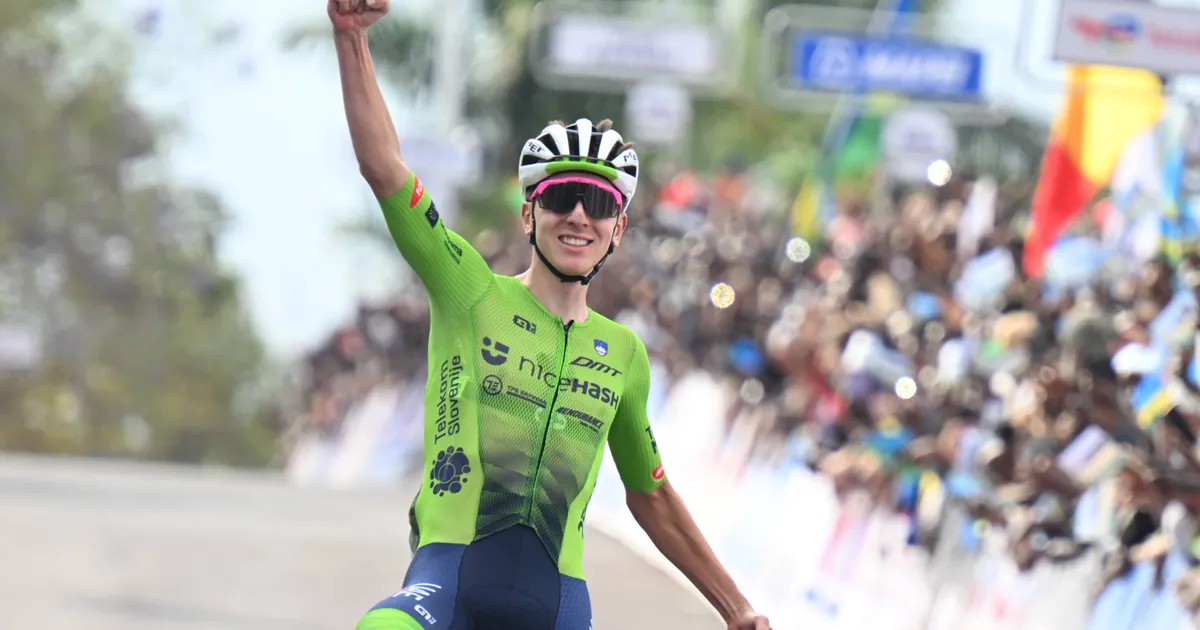While Pogacar recorded the day’s fastest time on the 11 km climb and managed to catch 1,188 riders, he ultimately fell one short of reeling in the entire field, with British hill climb specialist Andrew Feather holding him off to take the win.
Event born from a local idea, with global interest
The concept was first proposed at the start of the year by Simon Rožnik, director of Slovenian sports agency Extrem, with the goal of building something distinctive around Pogacar’s success and connection to his local community.
“Simon had wanted to organise something special for Tadej and his family for a while,” said Ribič. “When we first presented the idea to the Pogacar family, they were extremely positive. That’s when we started developing it seriously — in January.”
The course itself was significant. The road from Komenda to Krvavec is familiar terrain for Pogacar, and was the site of his first-ever victory as a young rider. It remains part of his regular training routes when he returns to Slovenia. But despite that personal connection, the scale of the event quickly exceeded local boundaries. “It shows how strong Tadej’s name is internationally,” said Ribič. “This wasn’t just a domestic race — we had riders coming in from all over the world.”
Execution and logistics on a new scale
The team behind the Pogi Challenge was tasked with organising what Ribič described as the biggest project they’ve ever delivered. Approximately 150 people were involved in running the event, including a large team of volunteers and logistical support from the Pogi Team.
Despite challenging conditions in the lead-up — including an early snowfall at altitude — the weather cleared in time. According to Ribič, the decision to press ahead with outdoor infrastructure was made in part on optimism. “I believed the snow would melt, and that the sun would come out — and it did,” he said. “Krvavec is unpredictable. On the Wednesday before the race, it was 20 degrees and sunny. By the weekend, everything had flipped. But in the end, we had no injuries, no need for medical help, and the entire race ran smoothly. We couldn’t have asked for more.”
The atmosphere on the day extended beyond the ride itself. Slovenian rock band Siddharta performed at the finish line, and roadside crowds turned out in large numbers to support both amateurs and professionals on the climb.
Looking ahead: “We want this to be a tradition”
With the inaugural edition completed, attention has already turned to the event’s long-term future. According to Ribič, the team hopes the Pogi Challenge can return in 2026 and beyond, potentially becoming a fixture on the post-season calendar.
“We’d like to make it a traditional event,” he told Siol. “The idea is to create something where Tadej can feel relaxed — not something driven by time trials or performance metrics. This is about cycling as a celebration, for fans and riders alike.”
The event comes at the end of a historic season for Pogacar, who in 2025 became the first rider in history to finish on the podium of all five Monuments in the same year, while also defending his Tour de France and world titles. But for the organisers, the Pogi Challenge was about more than results. “It’s a format that puts the spectators and community first,” Ribič said. “That’s what we hope to keep building — something sustainable, meaningful, and open to everyone.”
